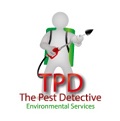Rat Control & Mouse Control
Categories
SIGNS OF RODENTS
WHAT TO LOOK FOR
Rodent Control
Stop Rats Entering your Home
We offer rat Guard sewer flap fitting to protect your home from rats.
How To Identify A Rodent
Rodent Facts
Rodents’ biology and habits can make them challenging to control, and they present a serious menace to your home. If you’re in need of rodent control services across Dorset, here’s what you should know about rats and mice:
Rats
We offer rat control, rat proofing and treatment for your commercial premise or home:
- Instincts: Rats are instinctively wary of things new to their environment, including rat control measures such as traps and bait, and colonise in attics, burrows, under concrete and porches, in wall voids and other hard-to-reach places.
- Disease: Rats can harbour and transmit a number of serious diseases. They can also introduce disease-carrying parasites such as fleas and ticks into your home.
Get in touch today if you have a rat problem.
Mice
Our mouse control and mouse proofing services can help you if you have a mouse problem:
- Access: They invade your home seeking food, water and warmth
- Contamination: Each mouse can contaminate much more food than it eats.
Rodent Family
The Order Rodentia is comprised of over 2,000 species, which are subdivided into many families. The Capromyidae, Castoridae, Cricetidae, Erethizontidae, Muridae, Sciuridae and Dipodidae are some of the most common families. The Family Muridae is the largest, containing nearly two-thirds of all rodent species. This family includes several subfamilies and includes sand rats, gerbils, crested rats and old world rats and mice.
As warm-blooded mammals that, like humans, rodents can be found throughout the world. They have oversized front teeth for gnawing and check teeth, which are adapted for chewing. Rodents chew on a variety of items available to them and cause great damage in and around homes
Rodents tend to be rapid breeders. Some species breed year-round, and populations are maintained through constant reproduction. Because of the rodents’ body plan, they are capable of squeezing through spaces that appear to be much too small for them. All such holes should be sealed to prevent entry and reentry of rodents. A pest control professional should be contacted for assistance.
Rats and mice are both extremely destructive within agricultural communities. A number of species feed on seeds and grains. The faeces and urine of some rodents may contaminate surfaces with which they come into contact.
Disease Information
It is not advisable to handle any wild rodent. They are equipped with large teeth and are capable of transmitting a variety of bacteria, viruses and diseases through their saliva, faeces and urine.
Therefore if you locate a rodent within your home, it is best to contact a pest management professional for removal and identification. The presence of one rodent within a home could signal an infestation.
Keep all children and pets away from the rodent. If cornered, the rodent will bite to defend itself.
Rodent Control

Stop Rats Entering your Home
We offer rat Guard serwer flap fitting to protect your home from rats.
How To Identify A Rodent
Rodent Facts
Rodents’ biology and habits can make them challenging to control, and they present a serious menace to your home. If you’re in need of rodent control services across Dorset, here’s what you should know about these pests:
Rats
We offer rat control, rat proofing and treatment for your commercial premise or home:
- Instincts: Rats are instinctively wary of things new to their environment, including rat control measures such as traps and bait, and colonise in attics, burrows, under concrete and porches, in wall voids and other hard-to-reach places.
- Disease: Rats can harbour and transmit a number of serious diseases. They can also introduce disease-carrying parasites such as fleas and ticks into your home.
Mice
Our mouse control and mouse proofing services can help you if you have a mouse problem:
- Access: They invade your home seeking food, water and warmth
- Contamination: Each mouse can contaminate much more food than it eats.
Rodent Family
The Order Rodentia is comprised of over 2,000 species, which are subdivided into many families. The Capromyidae, Castoridae, Cricetidae, Erethizontidae, Muridae, Sciuridae and Dipodidae are some of the most common families. The Family Muridae is the largest, containing nearly two-thirds of all rodent species. This family includes several subfamilies and includes sand rats, gerbils, crested rats and old world rats and mice.
As warm-blooded mammals that, like humans, rodents can be found throughout the world. They have oversized front teeth for gnawing and check teeth, which are adapted for chewing. Rodents chew on a variety of items available to them and cause great damage in and around homes
Rodents tend to be rapid breeders. Some species breed year-round, and populations are maintained through constant reproduction. Because of the rodents’ body plan, they are capable of squeezing through spaces that appear to be much too small for them. All such holes should be sealed to prevent entry and reentry of rodents. A pest control professional should be contacted for assistance.
Rats and mice are both extremely destructive within agricultural communities. A number of species feed on seeds and grains. The faeces and urine of some rodents may contaminate surfaces with which they come into contact.
Disease Information
It is not advisable to handle any wild rodent. They are equipped with large teeth and are capable of transmitting a variety of bacteria, viruses and diseases through their saliva, faeces and urine.
Therefore if you locate a rodent within your home, it is best to contact a pest management professional for removal and identification. The presence of one rodent within a home could signal an infestation.
Keep all children and pets away from the rodent. If cornered, the rodent will bite to defend itself.
SIGNS OF RODENTS
WHAT TO LOOK FOR
SIGNS OF RODENTS
WHAT TO LOOK FOR
Rodent Prevention Tips
Prevention methods should be implemented early in order to maintain a rodent-free home. Rodents reproduce rapidly, and small populations become full-blown infestations in very little time.
Keep any possible food sources away from rodents. Small crumbs and garbage are popular sources of infestation, as are dry goods such as grains and cereals. These should be kept in sealed metal or glass containers to prevent contamination. Fruits and vegetables should also be stored properly, and resulting waste should never be left in sinks or on counters. Cardboard objects prove attractive to rodents, as they tend to chew them up for use in their nests.
What The Pest Detective Does
Apart from the alarming breeding rates of Rats (170 per year) and Mice in the UK. The disease and damage to property can be costly. Therefore it’s important that you call us straight away so we can determine the best cause of action. We will work out how to prevent further infestations from occurring once we have resolved the existing problem.
Installing a Rat Guard
A Rat Sewer Guard will help stop rats and mice from entering your property. Our rat guard sewer flap fitting service will give you complete peace of mind at your premises to protect your property and everyone in it..
Rat & Mouse Removal
If you have a rat or mouse issue that you would like assistance with at a domestic dwelling or commercial property then get in touch to discuss how we may be able to help your requirements or schedule a free inspection today.
Pest Detective Discounts
Armed Forces Discount

Pensioner Discount

Categories
Have Any Question!
DON'T HESITATE TO CONTACT US ANY TIME.
Have Questions ?
Call us now
Head Office: 01202 042814
About Pest Detective
We specialize in 23 different kinds of pest, and we're also qualified to handle a much wider range of pest control needs. If you have a pest problem that's not covered in our pest library, be sure to contact us for information about what services we offer for your particular needs.
We are open
on Call
24 hours - 7 days a week
Services
Need support?
Drop us an email
Contact us
Locations
- The Pest Detective - 01202 042814
- Pest Detective Poole - 01202 042814
- Pest Detective Bournemouth - 01202 042814
- Pest Detective Blandford - 01258 395021
- Pest Detective Ringwood - 01425 896029
- Pest Detective Wareham – 01929 498149
- Pest Detective Dorset - 01305 360649
- Pest Detective Dorchester - 01305 360649
PEST DETECTIVE SOCIAL
PEST DETECTIVE SOCIAL
PEST DETECTIVE COVERAGE
Poole: Branksome, Broadstone, Canford Cliffs, Sandbanks,, Charminster, ,Hamworthy, Oakdale, Upton, Westborne, Canford Heath, Parkstone, Penhill, Lytchett Minster, West Parley, West Moors, and Wimborne.
Bournemouth: Ashley Heath, Boscombe, Charminster, Moordown, Kinson, Kings Park, Queens Park, Winton, Ferndown , Southbourne, Meyrick Park, Pokestown, Mudeford ,Verwood, West Parley, West Moors and Highcliffe.
Blandford: Child Oakford, Milton Abbas, Sturminster Marshall, Sturminster Newton, Hazelbury Bryan, Marnhull, Tarrent Hinton, Milborne St Andrew, Witchampton and Wimborne.
Wareham & Swanage: Purbecks, Bere Regis, Bindon Abbey, Corfe castle, Worth Matravers, Moredon and Wool.
Ringwood: West Hampshire, Bransgore, Burley, Fordingbridge, Highcliffe and New Milton.
Dorset: Poole, Bournemouth, Christchurch, Wareham, Swanage, Purbecks, Wimborne, Blandford, Ringwood, Dorchester and Weymouth..
Dorchester & Weymouth: Abbotsbury, Puddletown, Upwey, Portland and Warmwell.
© 2016 The Pest Detective - All Rights Reserved | Site Map | Terms & Conditions | Privacy Policy

